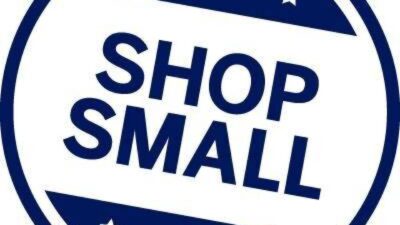Experts say local retailers do have some options for weathering the storm of an odd holiday shopping season.
Black Friday got it’s name from the widespread belief that many retailers operate at a financial loss during most of the year and the big sales turnout the day after Thanksgiving put many of those retailers back in the black and able to turn a profit.
However, in the era of 2020 and COVID, many retailers, especially local mom and pop shops fear the post-Thanksgiving bump won’t come as more and more shoppers turn to online shopping options to avoid shopping in-person.
Rob Karr, with the Illinois Retail Merchants Association, says it will be interesting to see how consumers respond to stores enforcing strict capacity restrictions in an effort to maintain social distancing.
Under the current COVID-19 restrictions, all retailers in Illinois are limited to 25% capacity with the exception of grocery stores and pharmacies which are allowed 50% capacity.
Karr says IRMA has been working to help small businesses stay open and competitive during the pandemic by both offering advice for changes they can make to their sales approach such as how to offer curbside service, but by also going to bat for small retailers with the Governor’s Office: “Because of our intervention with the Governor’s Office, we were able to convince the Department of Public Health, Governor’s Office, Department of Commerce and Economic Opportunity, that you need to make that false distinction between essential and nonessential retail anymore. All essential retail. All of them that can operate in the same way that a grocery store or pharmacy can. So having them open, number one, at 25% capacity is a great big deal. That at least gives them a fighting chance. Secondly, some of them have really tried to build out at least a little bit of curbside and delivery options for their consumers, but what we have to keep in mind is that those are expensive options particularly if they are done robustly. They require a great deal of manpower and a little bit of technology support.”
Karr says small businesses can still outshine large corporate retailers in specific areas now that they are able to stay open: “I think just having them open giving consumers that option as well. Rather than jamming more people into fewer stores, people are going to spread out now that they are able to shop at the store they want. I think that’s where smaller independent retailers are really [going to] excel. They can give that personal service. The consumers can have a more socially distanced shopping experience.”
The National Retail Federation released their annual holiday season predictions, forecasting a 4.5% increase in sales over last year, with online sales increasing 20 to 30% in 2020. Online sales generally increase only 10 to 15% on average year to year.
Karr says there are options for small retailers to reach and service consumers electronically, some of which are actually not that expensive: “As with every crisis, comes opportunity right, and there are online apps that have arisen that small retailers can utilize depending on how many customer counts they have in a day. You know you have employees. You can have people simply mailing you or texting you or doing it through Twitter or something, Facebook messages, and then you can have merchandise run through the curbside if people show up and let you know, so there is affordable ways to do that. Obviously, if you get into more delivery depending on your customer counts, and you have to enlist a delivery service that gets a little more expensive, but you can do it.”
Jacksonville Main Street says that 60% of every dollar spent in a locally owned business is reinvested in the community.




